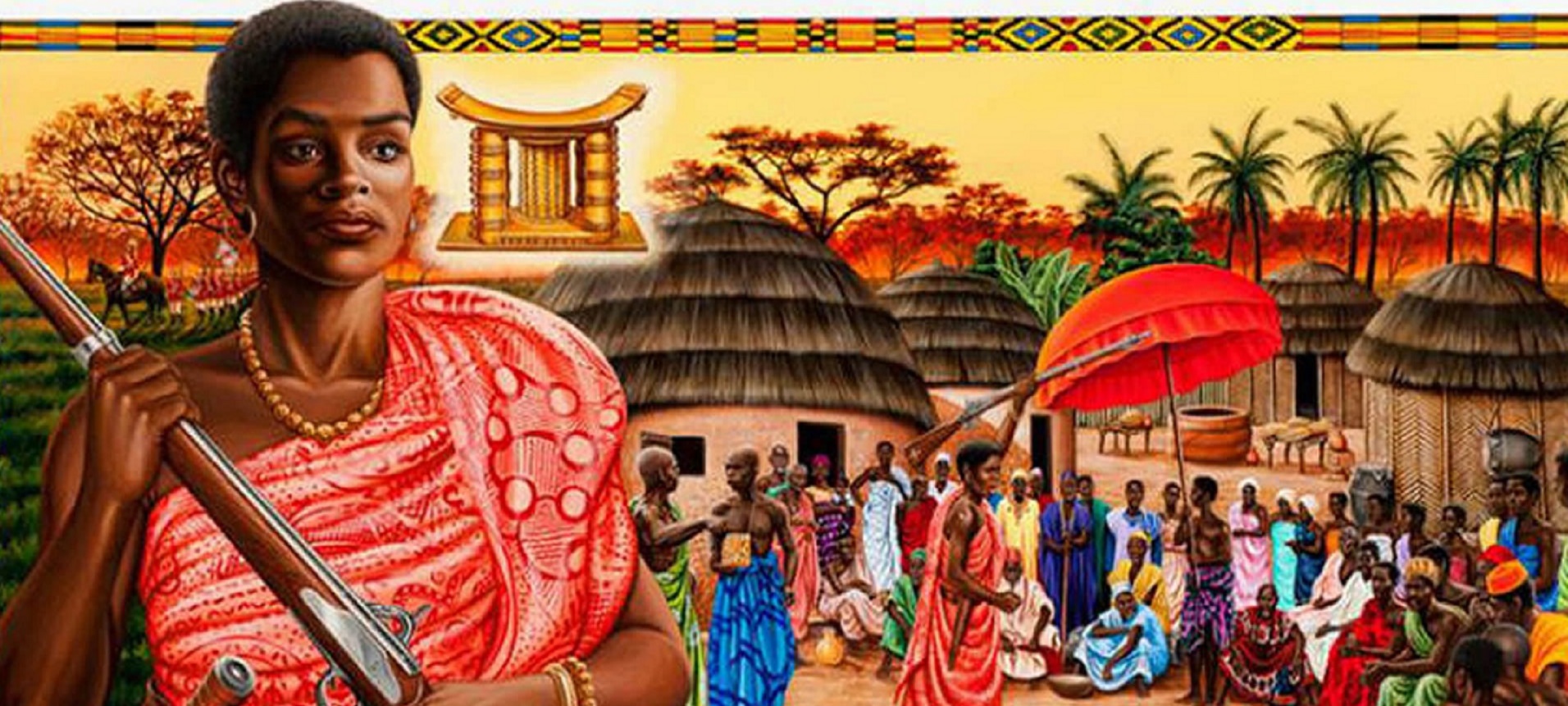Who is Yaa Asantewaa?
A Queen Warrior, Legend, Hero, Leader, Queen Mother, Grandmother and an inspiration for generations
Yaa Asantewaa was a powerful queen mother of Ejisu in the Ahanti Empire which is now part of modern-day Ghana.She was appointed by her brother Nana Akwasu Afrane Opese, the Edwesuhene or the ruler of Edwesu.Yaa Asantewaa played a crucial role in the Ashanti-British "War of the Golden Stool." She was born in 17 October 1840 – 17 October 1921 and became a symbol of courage and resistance in Ghana's history.
Yaa Asantewaa, born on 17 October 1840 – 17 October 1921 at Besease by Kwaku Ampoma and Ata Po in the Ashanti Empire.Yaa Asantewaa was a courageous queen mother and a pivotal figure in the history of Ghana. She emerged as a strong leader during a critical period of Ashanti history when the British colonial authorities sought to exert control over the region.
The defining moment in Yaa Asantewaa's life came in 1900 during the Ashanti-British "War of the Golden Stool." With the Ashanti king, Prempeh I, in exile and the sacred Golden Stool under threat, Yaa Asantewaa rose to the occasion. Yaa Asantewaa saw the Ashanti Confederacy go through a series of events that threatened its future, including civil war from 1883 to 1888. When her brother Nana Akwasu Afrane Opese died in 1894, Yaa Asantewaa used her power as the Queen Mother to elect her own grandson as Ejisuhene(King of Ejisu). When the British colonial masters exiled him Seychelles in 1896, along with the King of Asantes, Prempeh I and some other members of the Asante Kingdom, Yaa Asantewaa became regent of the Ejisu–Juaben district. After the exile of Prempeh I, the British governor-general of the then Gold Coast (Now Ghana), Frederick Hodgson, demanded that the Golden Stool which was the symbol of the Asante nation be brought to him.This led to a secret meeting of the remaining members of the Asante Kingdom at Kumasi (the capital of Asante Kingdom), to find ways as to how to secure the return of their king.There was a disagreement among those present on how to go about this. Yaa Asantewaa, who was present at this meeting, stood and addressed the members of the council with these now-famous words: ''Now I have seen that some of you fear to go forward to fight for our King. If it were in the brave days of Osei Tutu, Okomfo Anokye, and Opoku Ware, leaders would not sit down to see their King taken away without firing a shot. No white man could have dared to speak to a leader of the Ashanti in the way the Governor spoke to you this morning.Is it true that the bravery of the Ashanti is no more? I cannot believe it. It cannot be! I must say this, if you the men of Ashanti will not go forward, then we will. We the women will. I shall call upon my fellow women. We will fight the white men. We will fight till the last of us falls in the battlefields.''
Yaa Asantewaa was chosen by a number of regional Asante kings to be the war-leader of the Asante fighting force. This is the first and only example for a woman to be given that role in Asante history. The Ashanti-British "War of the Golden Stool" was led by Queen Mother Nana Yaa Asantewaa with an army of 5,000.
Leading an army of Ashanti Warriors, including women, Yaa Asantewaa's bravery and determination inspired many to join the resistance. While the Ashanti ultimately faced defeat in the war, Yaa Asantewaa's legacy endured as a symbol of courage, resistance, and the fight for Ashanti independence.
Yaa Asantewaa's contributions to Ghana's history have not been forgotten. She is celebrated as a national hero and a symbol of Ashanti resilience and cultural pride. Her story serves as a reminder of the strength and leadership of women in history and their vital role in the fight for independence and justice.

